Christina Qi, CEO of the market data platform Databento joins Cassidy Clement, Senior Manager of SEO and Content at Interactive Brokers to discuss leadership and mentoring in the finance space. Christina formerly founded Domeyard LP, a hedge fund focused on high frequency trading. Her journey from the world of intern to hedge fund came with it’s peaks and valleys. These lessons from a challenging industry, helped her find a voice in a way that makes an impact.
Summary – Cents of Security Podcasts Ep. 23
The following is a summary of a live audio recording and may contain errors in spelling or grammar. Although IBKR has edited for clarity no material changes have been made.
Cassidy Clement
Welcome back to the Cents of Security podcast. I’m Cassidy Clement, senior manager of SEO and Content at Interactive Brokers. Today, I’m your host for our podcast. Our guest is Christina Qi. She is the CEO of market-data platform, Databento and formerly founded Dome Yard LP, which was a hedge fund focused on high frequency trading.
Her journey from the world of intern to hedge fund came with its peaks and valleys. These lessons from the challenging industry helped her find a voice in a way that makes an impact. It’s only fitting that today we’re going to discuss leadership and mentoring in the finance space, so welcome to the program, Christina.
Christina Qi
Thanks for having me, Cassidy.
Cassidy Clement
Sure. So to kick this off, let’s start out at the beginning. Let’s talk about your origin story. Let’s talk about some of your financial service, college internships and then also how your college experience was. So what was that like? What was that background like for you?
Christina Qi
Yeah. So I’m originally from Salt Lake City, the suburbs of Salt Lake City, UT. So basically think about it as Northern Utah, middle of nowhere, there was one Chinese restaurant in town, and I’m Chinese. So that’s to give you a sense of, you know, how much I stood out.
But that’s really important to note because I went to a really good college, I went to MIT, and it was a struggle from day one to the day I graduated, it was a giant struggle for me, for better or worse. Yes, it is struggle for many students, but I think especially for me.
I didn’t know what I wanted to major in. I had taken classes in certain departments I wanted to major in. And then I got a C in biology and I got a C in computer science and those professors were like you probably shouldn’t major in that. And so I ended up majoring in something called management science, which is the major that everyone studies when they don’t know what they want major in. And it’s kind of like the last resort kind of thing. And so I did that and then thankfully that is actually the finance major basically for undergrads at MIT.
And so that was why I ended up in finance. And then after that every summer I applied to internships because that’s what you do when you go to these schools. I didn’t know this, but then everyone was applying to internships, so I started applying over and over again, and I would just get rejected left and right. And finally I changed up my strategy, I’m like, you know what? I’m from Utah. Let me apply to this one giant bank whose name you probably do know about (a bulge bracket who I can’t mention) in Utah. So I applied to this giant bank in Utah and I got it. Because the pool is a lot less competitive than New York. So that’s kind of how I got my foot in the door and I applied to divisions that weren’t as popular. I know everyone wants to do sales and trading or investment banking. I was like, you know what, I will do a back office job. I will intern anywhere just to get my foot in the door. So I applied and got into an operations position. And I loved it, it just opened my eyes to the world and to what was out there and how to even work in society because I’ve never done that before as a student. And so that’s kind of how I got my foot in the door. And then after that just utilized that experience to get closer to maybe the kind of position that I wanted, which was more in the trading space. I still wanted to try out trading for at least one summer. So I did that at another larger bank. And then after that, that was when I started my hedge fund.
Cassidy Clement
Got it. So that’s kind of how you led into the finance trading exposure, I guess. So in some ways I can kind of relate to that. I went to a smaller school where I’m from and in some ways it’s nice to be a bigger fish in a little pond because it makes the pool, as you said, a little smaller and it helps you narrow down your options for what you’d like.
But at the same time, it allows you to wear so many more hats likely than you were at some of these larger places, because there’s a lot of places that surprisingly people will find, that while they might appear to have a corporate budget, they still have a startup culture. Where it’s expected that you try a bunch of other things and maybe carry some projects over the finish line instead of just starting out and handing it off.
So if you were to travel back in time, what’s one piece of advice that you would give yourself since you went through all of that? Especially when you’re starting out and you’re trying all these different things, I mean, I had four different internships by the time I graduated. And I would say to myself, “yeah, that’s pretty cool, go ahead, sample the buffet, see what you like.” But some other people get a little discouraged if they’re only able to tap into one. What would you tell yourself?
Christina Qi
To be honest, for me, I had no choice on what kind of jobs. I couldn’t just pick between a couple of different internships, like my some of my college dorm mate. My dorm had quite a few different choices, but that’s because they had a great GPA, they were very ambitious and they always went to networking events.
I wasn’t quite like that. And so it was definitely a bigger struggle for me to be able to get whatever I could, and my favorite internship actually was still the operations internship in Salt Lake City. Yes, it’s not investment banking in New York. Yes, it’s not the one that everyone wants, but it was super fun. And you’re right, it’s like a smaller pond kind of environment. But it’s a lot more friendly, it’s a lot less competitive, people were really kind during the internship, too.
I remember one of them, one of my fellow interns, her parents came into town from Brazil and they were like, “just take the day off like it does not matter. We’ll still pay you, just take the day off.” And I was like, that’s so nice! Who does that and pays you while you can take a day off.
It was just a lot more human of an experience and I really appreciate that. It taught me how to set a good work culture and a good work environment I hope.
Just lots of great lessons learned from that. And I’m still friends with some of those folks from that internship, which I think says a lot like when you’re still friends with a lot of people from that summer and still hanging out whenever we’re in town. We all hang out with eachother, so that’s definitely super fun.
My only piece of advice is I think I’d definitely give myself and try my best to do better at in college is I was really bad at handling rejection in college. I remember I was a freshman and I applied to internships and one of them rejected me and I started crying. And I remember my roommates were all trying to make me feel better. But I just felt so awful that people didn’t want to hire me. And then I thought about it like, wait a second. I have no experience whatsoever, no one would want to hire me.
Yes, it’s a very competitive job pool. And some of these companies only look for one or two interns every summer and they probably get bombarded with resumes every day. So for me, the lesson learned there was now in my my job, by the way, I get rejected all the time today. I’m getting rejected by investors. Service providers don’t want to work with me for whatever reason, even though we have the money to pay them or, you know, job applicants that we’re giving out offers to and people will say no or flat out ghost to us.
And that happens all the time and it’s normal. And I wish I had known back then that that’s a normal part of the process, On average someone will apply to 100 jobs and get rejected by so many of them. That’s completely normal and that’s OK. I’ve learned in this environment, we just put that in our, I call it a mountain of rejections. And I just move on with my life. And so I just wish that I’d known that earlier when I was a student. So I could not be afraid to put myself out there and apply to all those jobs. Don’t be afraid of those rejections. What’s so bad about it? They’re not trying to stab you or hurt you.
Cassidy Clement
Right. I mean realistically, especially now with the amount of remote or hybrid or in office opportunities, I think what has changed a little bit because there is such an abundance, at least that you could see on job posting websites, look at all these opportunities. Why not me? And that’s a great ambitious attitude to have. However, it’s super important to also remember that no and constructive criticism or constructive feedback are a huge part of that journey.
I have to say as one of many grandchildren in an Italian family, you get used to that very quickly. The criticism is part of growing up or part of the feedback or part of growing. I was lucky enough to learn that when having Sunday dinner and helping make pasta, but not a lot of people get that very early. And when you start to get out there with something that you work so hard at, like the my baby projects, things that you work so hard on your portfolio and you bury your soul, sometimes you’re like, why? Why didn’t that work out? But it’s OK. No can be part of the process, and it may lead to something even better.
Christina Qi
I agree, yeah. Nos often lead to yeses and sometimes if they do provide feedback, I think it’s very valuable to me or to whoever is getting rejected. I think that’s a really good thing. I totally agree. I wish I grew up in a big Italian family. I grew up in a tiny Chinese family. My parents kind of sheltered me and so I guess I just was not used to that. Then to go out to college in the real world, I just was like, what is happening out here? And it definitely was a little scary for me to first enter the working environment and to even experience those rejections and experience. Even just interning during the summer, one of my internships, I didn’t get a return offer, by the way. And I’m like, oh, my gosh, I worked so hard, you know, to get the internship and then somewhere along the way, I bombed, I should say bombed it, I failed it. Something wrong happened and to be honest, I just didn’t live up to the standards that I had set for me.
And so that happens as well and it definitely was a huge blow to not get an offer either and to go back to college. And it was funny cause I was a senior by then. I was about to graduate and when you go to a really competitive college, all of your friends and classmates have multiple job offers. And here I am. I’m back at square 1 applying to hundreds of internships and jobs. I will intern after I graduate. I don’t mind.
I was like I will take any kind of job or any internship that will accept me. And I was just getting rejected left and right because I didn’t get that return offer and it was screaming on my resume that something is wrong with me. And just stuff like that. Just still learning, to keep going and not to give up afer that. I think it’s definitely really important.
Cassidy Clement
And I think that translates a lot into, of course, postgraduate employment as well. You know, economies ebb and flow, job markets have and flow, but it’s important to keep some type of a head up mentality because you never know what’s coming down the line. So with that, let’s talk about the second part, which is you got to graduation, you got the diploma.
So how did you get into finance? You liked to make an impact as much as you liked the professional accolades we could say as much as the nonprofit volunteer work. So how exactly did you get into the finance space? What was the inspiration?
Christina Qi
Yeah, so after I had been rejected from the internship, then I just was applying jobs left and right. And I was about to graduate. I didn’t really have a bright future ahead of me. At least back then I was just feeling kind of depressed about the entire situation. And then I remember some of my people in my dorm were working for Microsoft and I was like, can you just give me your leftovers? Like I will take any job. Literally that’s how desperate I was.
But anyway, then one of my friends from my dorm, she suggested something. During my final internship, our final project was to do a trading strategy basically. Come up with a trading strategy and present it to the entire floor on the last day. And so I did that and I presented a strategy- it was a quantitative strategy on a statistical arbitrage or some kind of very quantitative thing and the team absolutely hated it.
And I’m pretty sure I mentioned, I don’t know if I mentioned Interactive Brokers or wherever, but yeah, I did look at various broker tools to see what I could do with a more of a quantitative focus. Anyway, I presented it and my team hated it and there’s a reason for that. It’s actually because they are a discretionary trading desk and they don’t do this kind of stuff. Quantitative trading was still.. it was around, but a lot of teams still didn’t really adopt that and didn’t see themselves as.. you know, they were kind of anti-quant at the time.
And so then, yeah, my friends like, why don’t you just trade that strategy and look, if it doesn’t work, you have closure on a difficult summer. And if it does work then then great, you can have a side project. You can continue working on it, right? And I was like, actually, I might just do that because there’s nothing else for me to do, and so I started trading it on my own. It wasn’t high frequency trading, by the way, this was just like a very kind of low frequency, very kind of basic strategy back then. And as I was testing it out and working on it at first, it didn’t work actually. But then what got me into it was just, it just felt like exciting, you know, like I felt like I was learning something. And love how in tradeing, there’s an instant feedback cycle basically. Like you can see how good or bad you’re doing based on your trades, right? And I really like that the feedback is so instant in this industry and so I decided, you know what? I like this. I want to continue going and continue revising this until I find something that works. And by the end of the year, we had found something that worked.
I had also found a couple cofounders that wanted to work with me, which was also really fun. And so we ended up deciding, let’s just start this business together and just see where it goes. So that’s kind of the origin of the hedge fund.
And then fast forward 10 years, what a journey of a decade. But that was our origin. We had no ambitions to be billionaires or even to be rich. It was just like, let’s pay off our college loans and get us a job. And then hopefully we’ll have a start in our careers. Rather than being all jobless and not knowing what to do. So that was our origin.
Cassidy Clement
Got it. So I know that you mentioned this in there, but how was Interactive Brokers part of that start at all? I mean, obviously I’ve been here 5 1/2 years and I work for the company, but what was the integration of some of our items there?
Christina Qi
Yeah, for sure. So this was a long time ago. So I’m sure your products have changed by now. But I remember registering for an account with Interactive Brokers and then saying OK, can we see if we can run some of our strategies on there and go from there?
And so definitely I’m really grateful for interactive Brokers for those early days of my career and being able to get started instantly, which was great. But also it’s a cheap platform which also helps a lot as I was a student with no money whatsoever and of course as we scaled over time and wanted better, more bespoke services or direct connectivity or whatever other kinds of services we needed, right? Then eventually we would upgrade or pay for those types of services.
But I love how it’s available and accessible to people of all levels, including when I was a beginner beginner. And by the way, starting a hedge fund, the first thing I did was I went on Google by the way, and I googled how to start a hedge fund. Then it was like you need a broker, and I was like OK, that was a part of the list. And so then I googled around and that was literally how I found you guys. I googled around for brokers that were able to handle this kind of strategy. It wasn’t just retail manual trades, but rather we wanted to try to put in some automation. Then if there was some kind of API access that would be great. And so we were looking for a broker that had a little bit more of these kind of technical features that we wanted. And so yeah, that was beginner beginner story with you guys.
Cassidy Clement
So yeah, so that was kind of your stumble upon moment. But more so out of that initial stage, once you guys got going, what are some highlights and low lights that you look back on and like, I’m thankful that that happened since it helped me realize X, Y or Z?
Christina Qi
Wow. So many highlights and low lights everywhere, to be honest. It’s hard to summarize over a decade, but I’ll mention a highlight and mention a low light. So the highlight was the company that didn’t give me an offer, that they ended up investing in the fund many years later. And it really let me feel like I belong finally. Yes, there’s a place for everyone and I don’t have to necessarily work for a household name company. I can go somewhere else and do my own thing and that’s OK.
And so that helped me feel a big sense of closure that we had worked our way up. And finally have recognition from some of the larger companies in our industry. So that really helped me to just feel like I belong a little bit more, especially just given my weird background, I totally understand. It’s really weird by the way, unusual to start a hedge fund out of college. I think it’s becoming a little more common. There’s a lot more startups these days and I love that. And we’ll always encourage people to go for it. But definitely back then it was a little bit strange. And so yeah, that was definitely one of the highlights.
And then low lights. Oh my gosh. So, so many. I mean, we did every other thing wrong to the point where one of the funny things was we had written a list of principles. Kind of mirroring, you know, like principles by Ray Dalio like that. His famous book that came out was a New York Times bestseller. And thinking, well, I want to do a better job at this.
And so we wrote some principles that were kind of millennial driven, by the way. So if you guys are millennials or gen-z, you might understand this. We wanted a flat structure in the company. We wanted lots of perks. We had I remember art easels in the office, we had a soccer ball, we had fooseball. We had video games.
Cassidy Clement
The usual question is how many bean bags were in the office? That’s usually the question.
Christina Qi
Thankfully none. But we had bouncy balls like you know, those balls you sit on.
Cassidy Clement
Oh, same difference, same difference. It’s same neighborhood different street. That’s all that is.
Christina Qi
Yeah, different kind of nerd, right? So yeah, we had all those things. We had a nap room. And so the office looked almost probably like a Google campus maybe is what I imagine. A Facebook campus kind of environment rather than like a Wall Street.
I Imagine on Wall Street it’s all like cubicles and you know, it’s a totally different environment. Everyone’s dressed all formally and here we’re like, OK, let’s just have a casual dress code and just wear what you feel comfortable in. And so, that’s what we did. But then it turns out all of those perks that we offered and all those cultural things we did were wrong in the end. And what I mean by wrong is, like, people were still quitting. People were leaving. And I’m like, wait, we have a bouncy ball! We have free food! We have all these perks, like what’s the problem?
Cassidy Clement
Did you see all our easels?
Christina Qi
Yeah, look at our art easels! Look at our bouncy balls! Like why don’t you want to work here? And they would be like, well, Christina, look, someone actually told me this is great advice. He said people don’t stay because of free food and perks. And benefits like that. And yeah, it’s cool. You’re in a high rise and the view is nice. But that doesn’t matter, right? People stay because their voices are being heard, their contributions are being valued. They feel like they’re growing and learning in their career. And I was like, wow, you’re right.
In our pursuit of being cool and trendy, I think we had lost track of the roots of why we work, right? It’s a job at the end of the day. And in a job you want to feel valued and heard. And so I think we had just kind of missed out or missed that. And then over time we changed our culture. And it was funny actually getting rid of the free food. Nobody missed it, by the way, which was surprising to me. Not a single person complained and said, oh, if only we had the free food today. Not a single person did that. And the reason why is interesting. When we did have free food, sorry this is a super niche topic, but I think this is interesting. So for those of you who are looking for jobs, by the way, this is important. When companies offer free food on their brochures or on their website, don’t fall for this. So whenever we offered free food, there was always drama everytime.
Like we have a vegan, we have a vegetarian, we have an ovo-lacto vegetarian which is a different type of vegetarian, we have someone on an Atkins diet and we had a whole 30. I learned and memorized all the diets because by then we had we had to know. We had someone who was keto, gluten free, you know, all the allergies, peanuts, whatever. And so it became like a nightmare because every time we ordered something, somebody couldn’t eat. Somebody had to go out and begrudgingly go order some food and was upset. And then if that happened two days in a row, they would be extra upset and that kind of grudge would compound over time. Because it was unfair. Yeah, like the, “meatatarians” on the team ate quite a lot of food cause, you know, in Boston, a city with lots of food, everything just had meat in it, you know?
Definitely just culture wise, we have learned those lessons kind of the hard way. And then overtime had to adjust and realize like hey, instead of putting all this money, you know, thousands and thousands of dollars into food, let’s put that into bonuses instead. And people like that. They’re like, oh my gosh, I’m getting a bonus. That actually means a lot more to people than the free food that not everyone would eat. I think fairness is a really big thing within companies, and especially when it’s like an in-person work environment. It was so, so important. It was amplified whenever something was unfair. I think that, like, amplified everything a little bit just because it was in person. So yeah, just be aware job applicants out there, like, don’t fall for those perks.
Cassidy Clement
Yeah. So it’s good though that you and your cofounders or your peers were able to take those low lights and at least, you know, take a second and think about it. Because a lot of times, I mean, I’ve had internships in the collared shirt, Banana Republic dress-up scenario versus the joggers and hanging with the programmers on a beanbag. I remember doing Meta updates near a couch with the dog. Loved it, but they were different feels and some cultures work for some types of companies or groups. But it’s good that you guys were able to easily say, hey, listen, we tried it. We’re going to try something else that might fit our squad a little bit better. So what made you change gears then from that? I mean, I’m sure the highs were like, whoa. And then the lows you were like, uh oh, because I mean, you’re usually working with big numbers. What made you go over to a market data company? What made you want to go into that area?
Christina Qi
Yes. So it’s actually funny because in my career I feel like I went backwards than what most people do, which is, a lot of people want to go into a hedge fund that’s like their end goal. They always want to do that and dream about it. Whereas for me, I went from a hedge fund to working for service provider, which is like kind of backwards. We’re providing data now for hedge funds. And so the reason why it was mainly because by then it had been almost 10 years and I had burnt out a little bit from just all of those lessons and experiences and everything.
And yes, it was a wonderful experience. But definitely felt like it was time to move on and I wanted to also do something that was making a difference for the world. And I originally started like, again, the goal was just to pay off my student loans and get a job. And now that I had a job, over many years you discover, hey, I have a lot of privilege now. I’ve earned a lot of success I guess. I don’t want to say that word, but you know what I mean. I’ve had a lot of those external accolades. I don’t know if they mean anything, but at least people are telling me and recognizing the work that we’re doing, which has been great.
But then it’s definitely rough. So in 2020, we had a really rough year trading by the way. We were down 12% and I think I kind of use that as an, I don’t know if it’s an excuse, but thinking hey, you know, yes, we could recover from it. And also our investors wanted us to stay and continue. But for me, I really wanted to get out there and work on an idea that we were passionate about. At the time we were dealing with a lot of data- we were spending millions of dollars on data providers and data sold by headcount, so like every time we hired someone, they would beg me for data and that took 6 to 12 months before we got them any data, which was really sad.
So we were thinking how can create a more accessible.. kind of like Interactive Brokers, but for data, So something that’s accessible to people of all levels we have on our platform. Now we have students using us, we have high frequency traders using the platform. And I love that it’s accessible and available to everyone regardless of their level and experience and so on. So yeah, we wanted to just create something to lower the barriers to entry as well.
But while still utilizing our financial experience and background. So that was why we pivoted it and started out. I guess it wasn’t even a pivot – just starting a completely new company and then some people left and came with me and then some people decided to stay and that was OK. So yeah, we kind of split off at that point in time around COVID and decided to start working on a new venture.
Cassidy Clement
So a lot of the main ideas that you had mentioned in there; I know you said you kind of were backwards in your process, I guess, or your journey. But you kind of were looking at it and I know you and I had this conversation in one of our previous conversations where you had said something like at some point somebody asked you “do you want in finance to make a difference or are you just looking to get into one of these larger companies?”
And you thought “why can’t I do both?” Why can’t I make a difference and also have a decent company? which I completely agree with. Contrary to popular belief, you can have a decent company and also give back, so you’re able with a lot of these leadership notes that I have in front of me and these mentoring items such as development for careers and invest in girls and other things like that, how do you normally tell people these are some ways to kind of get into trading and retirement planning and stuff like that? Without having the connotation of “oh well you ran a financial company.” Sometimes it’s hard for people to always be like “Oh well for people starting out I want to hear somebody starting out.” But also it’s important in my opinion to listen to those people who’ve gotten a great track record like yourself to say, hey, listen, I’ve done it, I’ve got the highs, had the lows. What type of advice do you usually give to people for getting started?
Cassidy Qi
Oh man, I mean, you’re right. Speaking about doing good, by the way. I faced almost like a cognitive dissonance in school when your professors are telling you to go out there and make a difference in the world. I took a class on poverty, by the way, in college. And I remember it right? It was just ironic; it was such a great class. And we learned about how people are poor and how the stay poor and the cycle of poverty and everything and it just opened my eyes to so much.
But then I remember during one of the exams I got a phone call. And I was like, Oh my gosh. I remember rushing out of the room to go take the call, which I felt really about because I was disrupting the class. And then I took the call, and they were like we’re going to give you an internship and I was like, oh, my gosh. And I was freaking out, but I thought what a weird cognitive dissonance of getting an offer from a giant financial bolt bracket, while taking a test on poverty. And I failed that test, by the way, I remember I did really poorly because I couldn’t think afterwards. I had gotten a really great internship.
And so our business model is that we make rich people even richer by definition, by the way. As a hedge fund, we can’t just accept money from, you know, my mom and dad, like they don’t they don’t qualify as, it’s called a high net worth individual that you have to qualify for something in order to invest into a hedge fund to begin with. And so, because of certain rules in the US and this was like before the JOBS Act. And even after the JOBS Act, it’s still kind of a risky thing because pooling money from millions of smaller checks usually is not.. I guess it’s just riskier when you have more checks and more signatures on hand.
And so as a hedge fund that is structured by definition, we have to pull money from ultra-high net worth individuals and we trade their money. And then hopefully if we do well enough, we’ll take a cut of the revenues that we ended up taking home. That was the business model of what we did. And yes, we can trade in, you might have heard of ESG. So environmental social governance. And you can divest from fossil fuels, you can invest in products that are better for the environment and economy and stuff. But even then, ESG scoring criteria were flawed. There’s companies like oil companies that have really great ESG ratings and you’re like, wait, they’re an oil company that’s spilled millions of barrels of oil into the ocean. Why are they considered a great ESG-friendly company, right?
And so it’s just the criteria that people can find ways to gain that criteria. There’s a lot of hedge funds that are calling themselves ESG funds to raise more money, but they’re really not. And so, yes, you could technically invest in better things, but the end of the day, your business model is that you’re still making these rich people richer than you know, even more rich.
And so I think that cognitive dissonance just kind of grew on me over time, to be honest. And yes, there is some good we’re doing, like, we’re hiring people. We’re giving people jobs. We’re helping them feed their families. I definitely appreciate that. But I wanted to do something, like I imagine if I’m on my deathbed when I’m like a lot older, I want to be able to have hopefully other companies and other people out there saying “Hey, thank you. You helped us launch our startup faster. You helped us launch our ideas faster with a limited budget.” And I thought that that would be really fun, to be able to help others in the industry get a head start. And I imagined myself in their shoes early on too like when we were starting our startup too, and how much of a frustration that was to be able to get our foot off the ground.
And so, to even just get running, to get starting. To crawl and walk and all those baby steps and I’m just thinking about those and how can we make it easier for people if we can assist them in some way. And so yeah, cognitive dissonance definitely grew. By the way, the other thing I should mention is that is yes, there’s cognitive dissonance, but at the same time, look, it’s a competitive job market right now. Amazon and Microsoft and Google, they’re not hiring, they’re firing people right now. And that makes the pool even more crowded because all those people who should be going to work at Amazon every year, which is quite a lot of people, now they’re all looking for a job too.
And so the pool is the most competitive it’s ever been. So I totally understand. Some people like me- I just wanted a job. And I couldn’t even get a job. But I just needed some job, just a paycheck so that I could go home and pay my rent, right, and buy some food and stuff. And so I totally understand. It’s a competitive job environment. Plus, as a student, we are in debt. I had $40,000 in student loans I had to pay off. So, realistically speaking, yeah, if you don’t have the means to afford that, and you need to find a way to pay that off immediately, yeah, absolutely. Find a job that pays you a lot of money, right? And, like, go for it. There’s nothing bad about being- it’s not even selfish. It’s just taking care of yourself, which is not selfish. I think that’s a good thing to take care of yourself. And to prioritize your health and your mental health. And make sure that you feel like you have stability in your life- that’s so, so important and so. In this environment, I think absolutely yes, like your professors telling you could do good and I get that. Look, for students who have a lot of privilege and can do that on day one, yeah, absolutely go for it. Do things that are good for the world that you want to go into. But then you know, for some folks who are out there like me, where it’s just hard to get a job. And I was struggling so much. Then you know what, get whatever job you can and once you find your footing, once you feel more stable, then you can go out there and apply to the kinds of jobs that you really want.
Cassidy Clement
So covering a lot of these pieces usually, at least historically, we could say within the finance industry, it’s generally been rather male dominated. That’s started to change in the past several decades. But as a woman in the finance industry, what are some experiences and anecdotes you could share for other women and girls getting started?
I mean, for some, they may be first- generation college orfirst-generationn homeowners, things like that. Obviously we’ve discussed some trading and retirement planning. Those types of things some generations were not privileged enough to be able to take advantage of or learn about. Thankfully, with the Internet and companies offering various trading platforms and pieces, it’s a little bit more accessible. But what are some experiences that you have that would be rather interesting to our listeners?
Christina Qi
Yeah, for sure. So I totally get it. It’s such a tough environment and in terms of advice these days, I would say first off as a woman- look, nobody wakes up and says, woe is me, I’m a woman, right? Oh, it’s so tough in this industry I’m a woman. I think we all are like, hey, we’re ready to go. I’m excited for my work right? And let’s go for this and see what happens. And these days, I feel like a lot of what happens are usually microaggressions. I’ve never had a situation where someone said, oh, she’s a woman, we can’t invest in her or she’s a woman, I don’t want to work with her.
But usually it’s more microaggressions. And sometimes it’s because of age unfortunately and my race combined maybe. For example, I’ve been mistaken as a waitress like three or four times at professional hedge fund events where we’re networking and everyone’s dressed up. Unfortunately, I can’t wear black anymore because whenever I wear black, people are like, excuse me, ma’am, can you take our plates? And that happens so often to the point where I’m just like, Oh my gosh. And it’s more like an impression, first impression kind of thing, right? When people walk in the room, does this person look like a leader or a CEO? Or does this person look like a waitress, right? And again, there’s nothing wrong with being a waitress. Both of my parents were waiters growing up. So I have all due respect for waiters, but it’s just that in a networking event, when you’re in the industry, that impression does matter, right? And so it’s more microaggressions like that. I guess that we as women will face, and for me as a woman of color I guess who looks like a waitress, kind of does affect people’s impressions of me and I’ve had to learn to kind of adapt to that a little bit. Like I dress a certain way now. I’ll try my best to go up to people and try to join conversations because it’s hard. People rarely come up to me, and that’s OK. And so I’ve, learned I will be the one to always go up to other people and say hi and meet people cause they’re all there to be friendly and meet other people.
And everyone has good intentions by the way. Like every time I said I’m not a waitress, people will be really embarrassed and apologize. And absolutely. It’s like your worst nightmare. If you thought someone was a waitress and they weren’t, right? I’ve had experiences where I was the I guess aggressor you could say. I was the person that was wrong unfortunately. Let’s see in our office, we had probably about 500 or so investors walk into our office at some point to do due diligence on us. And there was 1 investor who was a woman. Out of 500 people, we had two women by the way total, walk in to the office. The first time a woman walked in, I assume that she was the assistant, the associate or junior level person because of my own biases.
And then it turns out she’s the CEO and I was like, holy crap, I am so embarrassed by that. I cannot believe I made those assumptions. And so we’re all learning here, we’re all imperfect. These are all society’s assumptions about all of us. And myself included. I make those assumptions too. And so I think there’s a lot of unlearning for me to do almost. I have to relearn what a CEO looks like myself to be able to get better and improve and stop my own biases and behaviors like that. But yeah, sorry to be all dreary about that, but I think that’s just kind of true.
Acknowledging that, look, these issues do exist today, but also at the same time, we can improve ourselves. And also, I don’t want to say it’s not on us to educate others, but rather if it ever bothers you and what I’d like to do for me personally, everyone has a different approach by the way. Some people just ignore and just say it’s not my job to do this. Some people will sit down and educate the person. Some people like me, I use humor to combat the situation. So, whenever people ask me to take the plates now, I’ll be like I will take my plates as soon as I give my keynote speech up on stage.
And so it just kind of makes it a little bit more funny. They’re kind of laughing about it. A lot of people also tell me, this is a weird one too- I’m a lot older now. I’m in my mid 30s. But back when, even today, some people will be like your parents must be so proud of you and I’ll be um, you know? My cofounder, his his parents are dead, right? And it’s just why do you assume that we kids with living parents, right?
Like, that’s just such a weird thing to assume. It’s like oh thank you, Dale, your parents must be proud of you too. And he kind of is taken aback by the comment, you know. And so just using humor, I think makes the situation better. It makes me smile and laugh at the situation a little bit, but also helps them realize that hey, I just said something weird. Sorry to assume that your parents are alive, right? Or that you have a good relationship with your parents. Not everyone does. But yeah, that’s what I do. Sorry. That’s not the answer you were looking for.
Cassidy Clement
No. I mean, hey, listen, your experiences or your experiences and as as the industry starts to grow and evolve, the amount of people who are educated within the financial space or educated on the financial space is growing, and a lot of that, as I mentioned, is technology, is more global companies, etc. And accessibility to different types of education of which you have this great professional resume. But your nonprofit and your volunteer work are just as impressive. So in what ways did you want to make an impact? Because I have a whole list here of all these programs. We have MIT Corporation Development Committee, Financial Executive Alliance, Board Invest in girls, Boston Alumni for MIT Sloan? I mean girl, you got a long list here. I mean, it looks great. If this was a varsity jacket, you’d have pins down the arm. You have a great setup here.
So it’s not like you’re just sitting at home with 15 monitors watching the DOW. So what made you want to make such an impact like this? And maybe speak about some of these programs of how people can start to get involved and start to learn a little bit more about the financial space.
Christina Qi
Yeah, for sure. I think there’s three reasons. One is to be honest, to settle the cognitive dissonance in my head as I’m by day making billionaires richer and then after work, I’m like, I need to go volunteer at my local food shelter because I need to be grounded. I’m sick of having dinners or parties with these billionaires. Some of them will fly me out in a jet to their fancy apartment or hotel whatever, like mansion thing that they have. It was just like, way too much. Sometimes it’s like their reality, I’m just like, I need to be grounded back in reality again.
I need to remember my roots and where I came from. I grew up on welfare and food stamps like that is the kind of culture I grew up in. And so I just needed to remember that and think about like, OK, how can I help people who are out there right? Just anything from being food secure to basic necessities and things like that. Yes, some of the nonprofits I do, for example, Invest In Girls is a great example where they help girls in high school to learn about financial literacy. And these are very often girls who are coming from just neighborhoods that are inner city neighborhoods. Or a lot of them have never been in a high rise building even though they live in the city. they’ve never actually been in one of those buildings. So to be on these field trips to these companies and have them learn about the industry, they’re just blown away by seeing the city and where they live from the 50th floor. It’s just such an experience for them.
And so just showing them the world and the goal isn’t to have them all go into finance, although a lot of them do. The goal is mainly let’s teach them about what’s called financial literacy. Which is more, how do I pay my taxes? How do I prepare for retirement? Should I be saving up money? How can I save up money? How do I open up a bank account, right? How do I help my family? And so those are the conversations we’re having and teaching them about. And so that’s what some of these nonprofits do. And I just absolutely love those kinds of missions as well.
But initially the other reason I got involved, though, was there was an article I read actually in Harvard Business Review many years ago that said, it’s about time that women took more board seats within these nonprofit organizations. And I was like, wait a second- it interviewed a bunch of men who in their 20s just starting off their career. They’re already on a bunch of boards. And I’m like, wait a second, my classmates in college are taking on these board seats. And here I am. I’m the same age. I feel like I could do this too. And so then I started volunteering.
And then after volunteering, they were like, hey, would you like to be more involved? You could take a potential advisory seat or board seat and be more involved that way. And so that’s kind of what happened. But it’s just realizing a lot of men have their own network and the other thing I realize a lot of these boards, by the way, they’re father and son sitting on these boards. And I’m like, what an old school network going on here, right? Like father and son after how many generations are going on these boards? And so, yeah, women don’t do that. And we need to.
And so I decided to put myself out there and to get these positions as well. Partially also just to get myself out there and to show that I can look like a board member too. I don’t know. I can look like a waitress and a board member at the same time. And so just changing society’s perceptions of what that looks like in society. So anyway those were some of the reasons. There’s a third reason for sure. I think just mainly wanting to do some good and also join a community outside of work. By the way, it’s a great way to join a community that’s outside of work and to contribute in some way. And it can be as easy as just volunteering, right? And you know, helping to host an event for them or there are a lot of different ways. I had one friend who volunteered and hosted a chocolate tasting event, which is super fun. So there’s all kinds of things you can do to help bring awareness to a cause and you know it’s optional. People can show up and some people might donate or not, but at least it’s ways of bringing awareness to a good cause that someone cares about.
And so I find that that’s such a fun way to just be involved in the community outside of your life. Work can be so insular, like a bubble, right? And so it was nice to step out of the bubble a little bit. And to go back into the real world and real society.
Cassidy Clement
Well, I think you brought up really great points. We covered a lot of good stuff. How you learn, how you put it into action and then how you shared that knowledge with other people and other programs. And I think I mean from what I can see, you’re doing a lot of great stuff. So thanks so much for joining us on the program today.
Christina Qi
Thank you, Cassidy. It’s a pleasure to be here.
Cassidy Clement
Great. Thanks. So as always, listeners can learn more about an array of financial topics for free at IBKR campus.com follow us on your favorite podcast network and feel free to leave us a rating, a review. Thanks for listening everyone.
Join The Conversation
If you have a general question, it may already be covered in our FAQs. If you have an account-specific question or concern, please reach out to Client Services.
Leave a Reply
Disclosure: Interactive Brokers
The analysis in this material is provided for information only and is not and should not be construed as an offer to sell or the solicitation of an offer to buy any security. To the extent that this material discusses general market activity, industry or sector trends or other broad-based economic or political conditions, it should not be construed as research or investment advice. To the extent that it includes references to specific securities, commodities, currencies, or other instruments, those references do not constitute a recommendation by IBKR to buy, sell or hold such investments. This material does not and is not intended to take into account the particular financial conditions, investment objectives or requirements of individual customers. Before acting on this material, you should consider whether it is suitable for your particular circumstances and, as necessary, seek professional advice.
The views and opinions expressed herein are those of the author and do not necessarily reflect the views of Interactive Brokers, its affiliates, or its employees.
Disclosure: Hedge Funds
Hedge Funds are highly speculative, and investors may lose their entire investment.










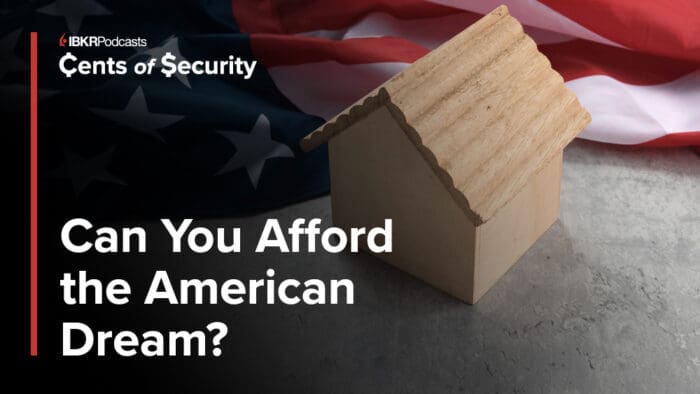
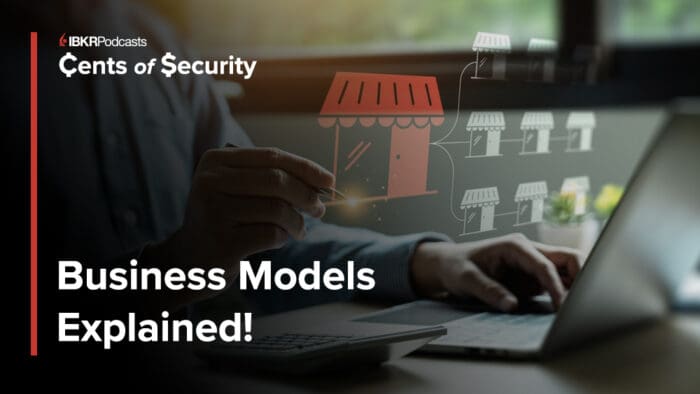

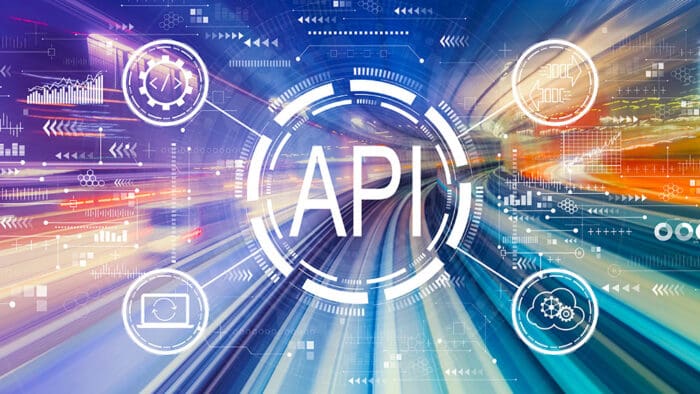

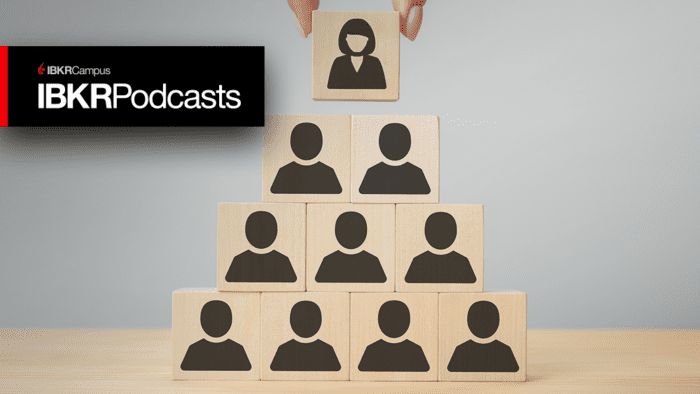
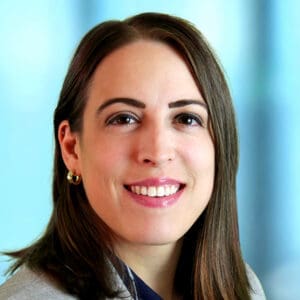
Great inspiration, never give up on your ambitions
What a great country we live in. Not perfect nor close to it. But I’ve lived and worked in so many places that have no stories like this one.
Love this conversation! Could apply to anyone as well, even older folks who want to change careers or young adults disabled since childhood. Great interview Cassidy! Thanks for your humility and generosity in sharing your histories and insights! Going to show this to my son! Thanks so much!! ❤️. Donna
We appreciate your engagement! We hope you continue to enjoy IBKR’s Podcasts.